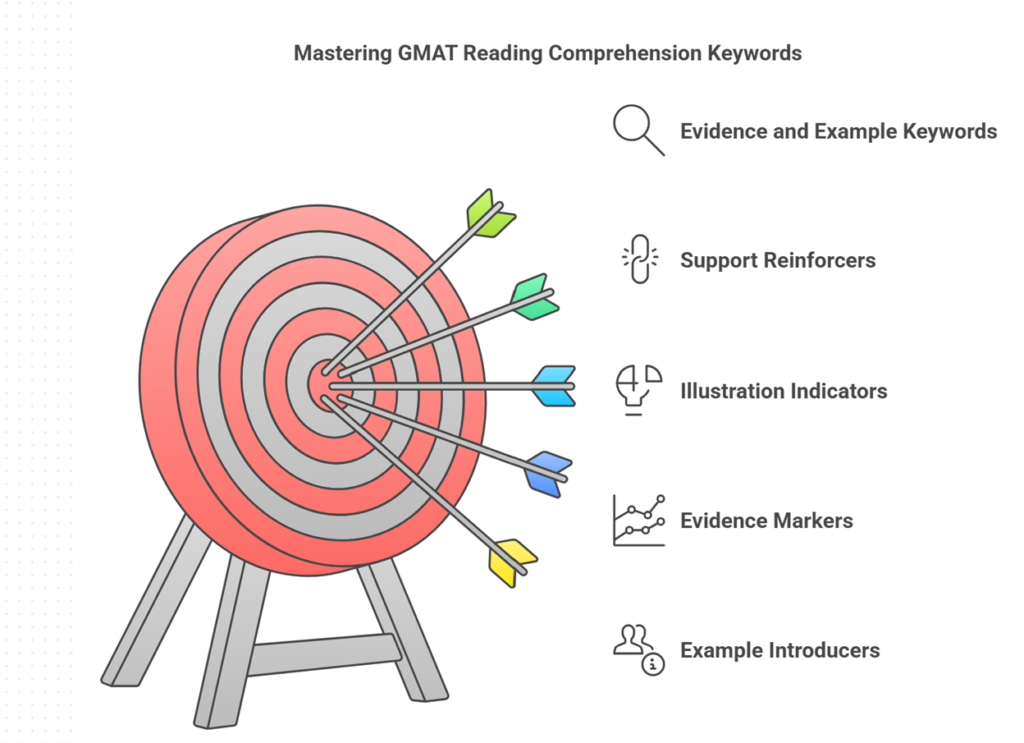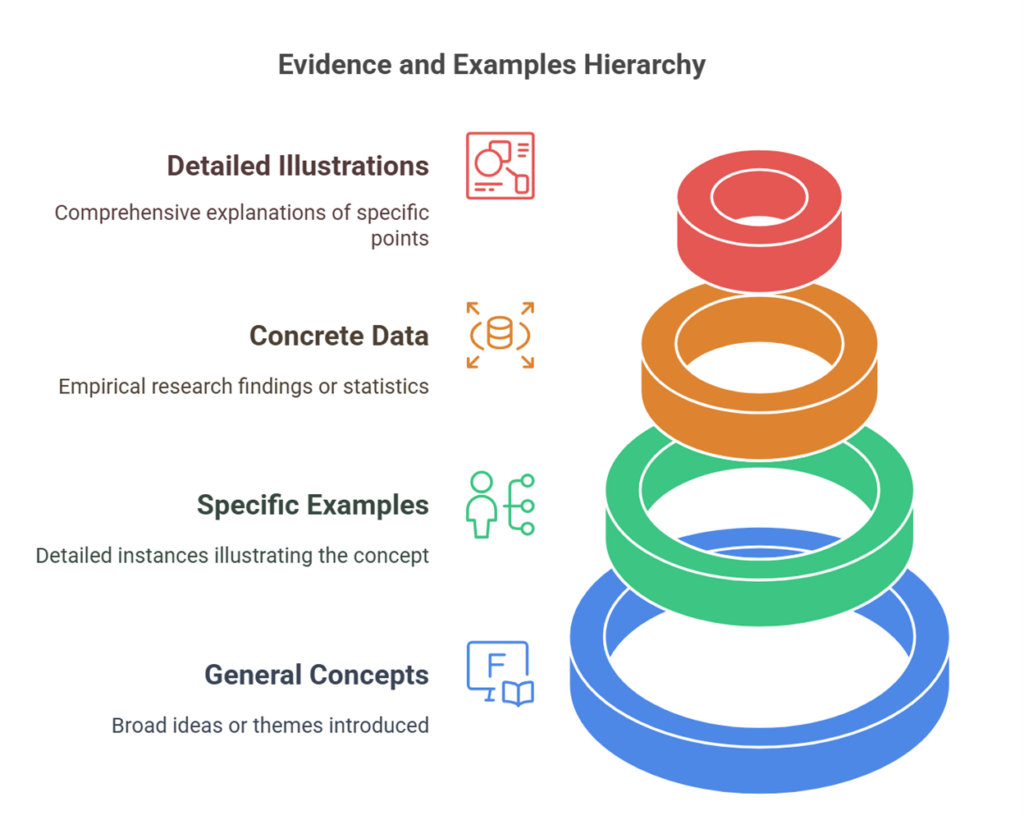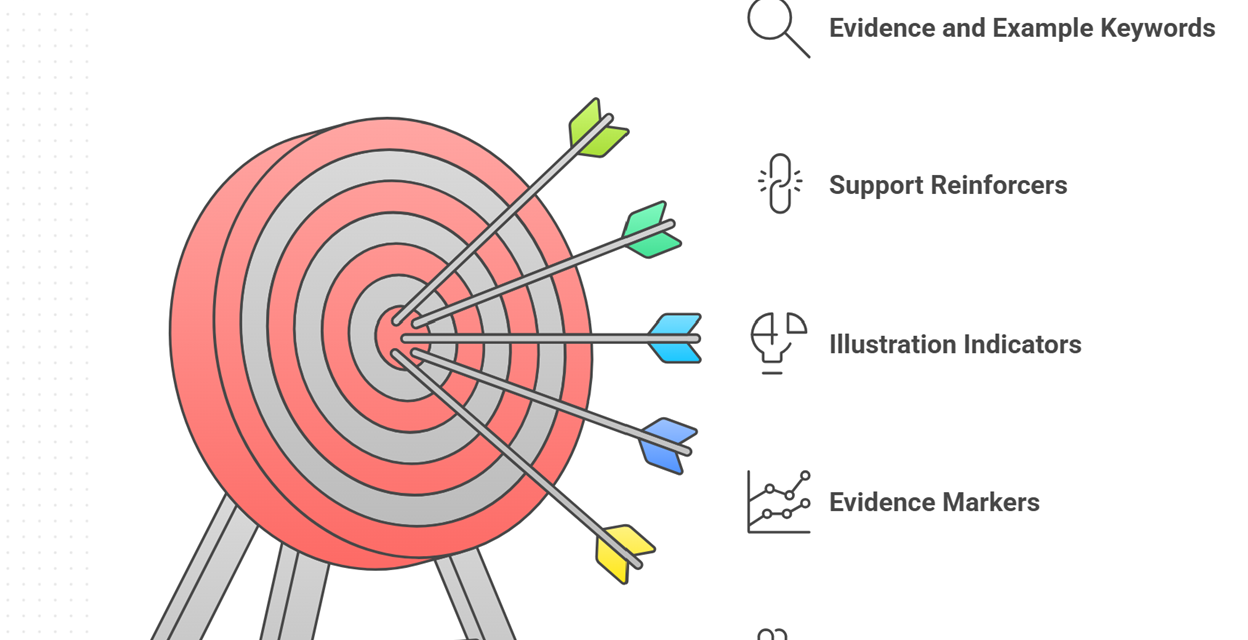Ever feel overwhelmed by complex GMAT Reading Comprehension passages? You’re not alone. Just as a spotlight cuts through darkness to reveal what matters, evidence keywords illuminate the crucial connections in RC passages. These powerful linguistic tools help you track how authors build their arguments, distinguish between main ideas and supporting details, and most importantly – answer GMAT questions correctly. In this guide, we’ll explore the different types of evidence keywords and show you exactly how to use them to boost your RC performance. Think of this as your backstage pass to understanding how GMAT passages are constructed – let’s master these keywords together.
Evidence and Example Keywords
Evidence and example keywords are like spotlight operators – they illuminate specific details that support main ideas. These keywords help you understand how authors build and strengthen their arguments through concrete evidence, illustrations, and examples.
Types of Evidence and Example Keywords
Example Introducers
- Signal specific illustrations of a point
- Examples: “For instance,” “For example,” “Such as,” “Including,” “Particularly”
- Function: Connect general ideas to specific cases
- Usage note: Often provide concrete applications of theoretical concepts
Evidence Markers
- Signal supporting proof or data
- Examples: “Evidence shows,” “Studies indicate,” “Research reveals,” “Data suggests”
- Function: Introduce factual support for claims
- Usage note: Often precede important statistical or research-based support
Illustration Indicators
- Signal explanatory examples
- Examples: “To illustrate,” “Consider,” “Take the case of,” “As shown by”
- Function: Make abstract ideas more concrete
- Usage note: Often introduce extended examples or case studies
Support Reinforcers
- Signal additional supporting points
- Examples: “Indeed,” “In fact,” “Notably,” “Specifically”
- Function: Strengthen previously stated ideas with additional evidence
- Usage note: Often introduce stronger or more specific support

How to Use Evidence and Example Keywords Effectively
Connecting General to Specific
- When you see “For example,” link the specific example to what has been just discussed
- At “Studies show,” prepare for concrete data or research findings
- With “Consider,” expect a detailed illustration of the point discussed
Understanding Evidence Hierarchy
- Use these keywords to identify key supporting points
- Track how the author builds evidence for main arguments
- Distinguish between major evidence and supplementary examples

Practice Example
Consider this passage excerpt: “Recent advances in artificial intelligence have transformed multiple industries. For instance, in healthcare, AI algorithms can now detect diseases with remarkable accuracy. Indeed, studies show that AI-powered diagnostic tools are correct in 95% of cases. To illustrate this impact further, consider the case of radiology, where AI systems can analyze thousands of X-rays in minutes, something human radiologists would need days to complete.“
Evidence and example keywords tell us:
- “For instance” → Healthcare is a specific example of AI transformation
- “Indeed” → Reinforces the previous point with specific data
- “studies show” → Introduces statistical evidence
- “To illustrate” → Signals a detailed example
- “consider” → Introduces a specific case study
Conclusion
Mastering evidence keywords is a game-changer for GMAT Reading Comprehension. As you practice spotting these keywords, you’ll find yourself naturally mapping passage structures and tracking authors’ arguments with greater precision. Remember: “For instance” and “For example” signal specific illustrations, “Studies show” and “Evidence indicates” introduce hard data, while “Indeed” and “In fact” reinforce key points. Apply this knowledge in your practice tests, and you’ll see a marked improvement in your ability to tackle even the most challenging RC questions. Keep this guide handy as you prepare, and watch your RC confidence grow.
Are you planning to pursue MBA at top business schools? Let us help you conquer the first step of the process i.e., taking the GMAT. Take a free mock test to understand your baseline score and start your GMAT prep with our free trial. We are the most reviewed online GMAT Prep company with 2800+ reviews on GMATClub.















